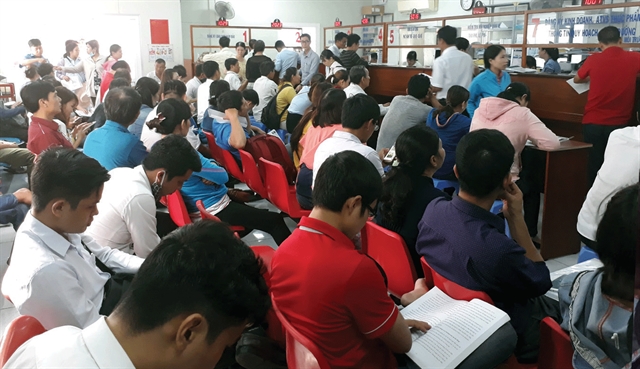 Economy
Economy


|
| Despite progress, the slow reform of investment procedures is still a bottleneck of the local economy in Việt Nam. — Photo tinnhanhchungkhoan.vn |
HÀ NỘI — The Central Institute for Economic Management (CIEM) identified the slow reform of investment procedures as a bottleneck of the local economy amid the easing of measures after the COVID-19 pandemic.
CIEM’s director Trần Thị Hồng Minh told a conference in Hà Nội yesterday that the bottlenecks in procedures were reflected in the implementation of e-government, the efficiency of coordination and use of public resources as well as inclusive development and sustainability.
“Việt Nam's economy was badly affected by COVID-19 in the first months of the year. Though the country has controlled the pandemic well and entered the economic recovery process, the pandemic is still complicated around the world,” said Minh.
She said: “These bottlenecks have existed before the pandemic," adding: “It is time to remove the bottlenecks to develop the economy.”
Nguyễn Anh Dương, head of Macroeconomics Department, CIEM, said they should take into account changes and uncertainties that may affect the socio-economy in the next ten years too.
Dương said the bottlenecks in attracting investors, especially foreign ones, were unnecessary procedures, adding that the country should not only cut such procedures but also pay attention to the issue of those procedures to best help the investors.
Also at the conference, Đậu Tuấn Anh, head of the legal department from the Việt Nam Chamber of Commerce and Industry, said that Việt Nam's management ability would be seen differently in this pandemic, adding that: "The quality of governance in Việt Nam has been confirmed and the local businesses have a good adaptation.”
However, Tuấn said the country needed to continue reforming its administrative procedures, adding that: “The procedures need to create favorable conditions for businesses, not just to solve the difficulties.” — VNS




